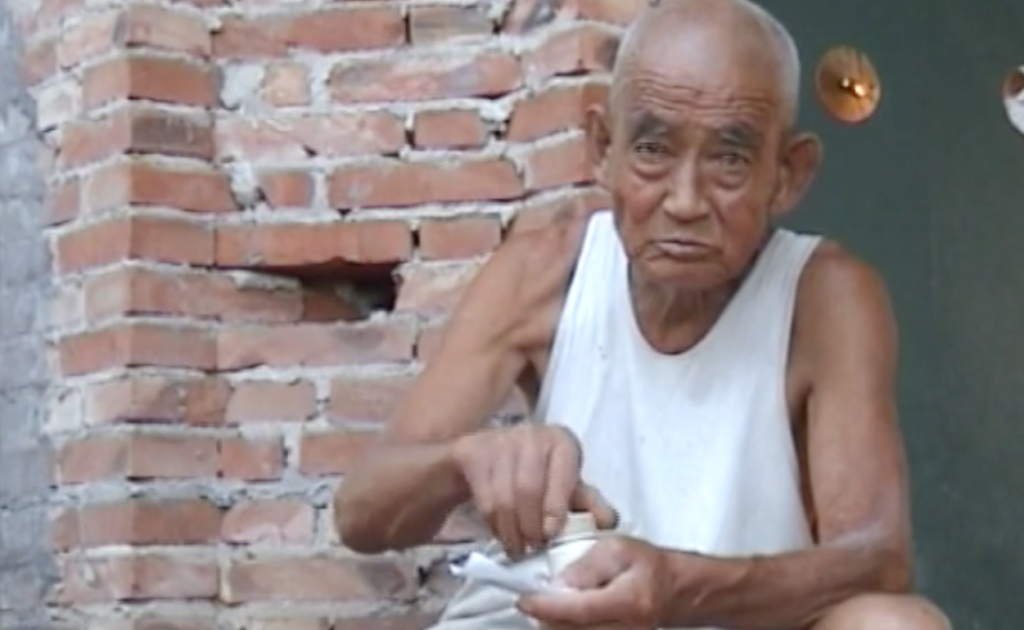
《民间记忆计划》里我最喜欢的口述之一是贾楠楠采访的贾福田老人。贾老人1936年出生,1947年长春围城的时候,11岁的他跟着家人一路辗转,历经40多天才逃回老家河北。50年代初期,贾老人去北京靠蹬三轮车为生。58年大饥荒初始,贾老人因为信奉天主教,不满意国家的宗教政策,不愿意接受政府强加的天主教爱国会,因而被送去劳改,直到69年才被释放,回到河北老家。他在口述里回忆了当年逃难和劳改的经历。贾老人的口述弥足珍贵的地方在于,长春围城,民间对天主教的信仰,劳改经历,这些都只能苟且藏匿于官方历史的阴暗角落,罕为人知,更不要说出现在历史课本上。但这也正是我们记录、保存、传播口述史的重要原因之一。
口述里贾老人没有说,但根据视频里的情况猜测,老人现在应该是靠回收破烂为生。显然,当年的那些经历和他的信仰对他现在的生活造成了巨大的负面影响。可是,虽然他的生活并不富足,但老人身上并没有那种经历过太多苦难而导致的戾气和对生活、对社会的怨愤。这也是我崇敬贾老人以及喜欢这段口述的另一个原因。在那些战乱动荡的年代,无数人逃难,无数人挨饿,无数人一辈子都没能回到家。我们记录下这些幸存者的故事,也是提醒我们不能遗忘那些逝去的、微小但同样珍贵的生命。在宏大甚至残酷的历史叙述之下,个体并非无足轻重,相反,他们更能展现出人性中的闪光点。
Jia Nannan’s interview with Jia Futian is one of my favorite interviews in the Memory Project. Born in 1936, Jia was 11 years old when the Changchun Siege happened in 1947. He and his family fled Changchun, and after over 40 difficult days of traveling, they eventually returned to their hometown in Hebei Province. In the early 50s, Jia went to Beijing and rode tricycle for a living. In 1958 when the Great Famine started, Jia was sent to a labor re-education camp because of his belief in Catholicism—he opposed the state’s religious policy and refused to join the Chinese Patriotic Catholic Association, which was established and controlled by the Chinese state. He was eventually released in 1969 and returned to his home in Hebei Province. In the interview, he talked about his experience as a refugee during the Changchun Siege and later as a laborer at the re-education camp. What is most precious about his interview is that stories about the Changchun Siege, about common people’s belief in Catholicism, and about labor re-education camp can only hide in the shadow of the official history. They are unknown to the general public, not to say being included in history textbooks. This is one of the most important reasons why we have to record, collect and spread oral histories.
Jia did not discuss his current life in the interview, but judging from the video, it seemed that he was making money through recycling garbage. Obviously, his past experiences and his belief had disastrous impact on his life. However, he did not display any strong hostility or resentment toward life or the society, as many people experiencing similar hardship and suffering would have expressed. This is another reason why I admire Jia and love this interview. In those turbulent years, numerous people fled for their lives, numerous people starved, and numerous people never made it back home. Through such survivors’ stories, we are reminded again and again that we should not forget those deceased, seemingly insignificant, but equally precious lives. Under the grand, oftentimes cruel, historical narrative, such individuals are not disposable. On the contrary, they have important lessons on the human nature for us to learn from.
—Ling Jin